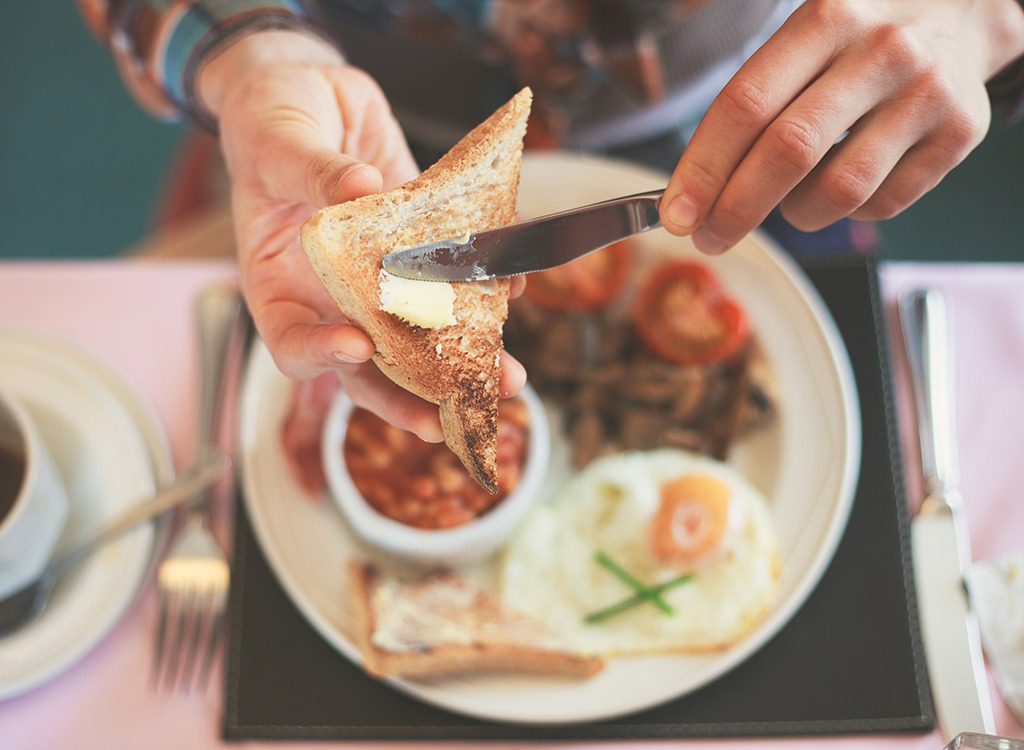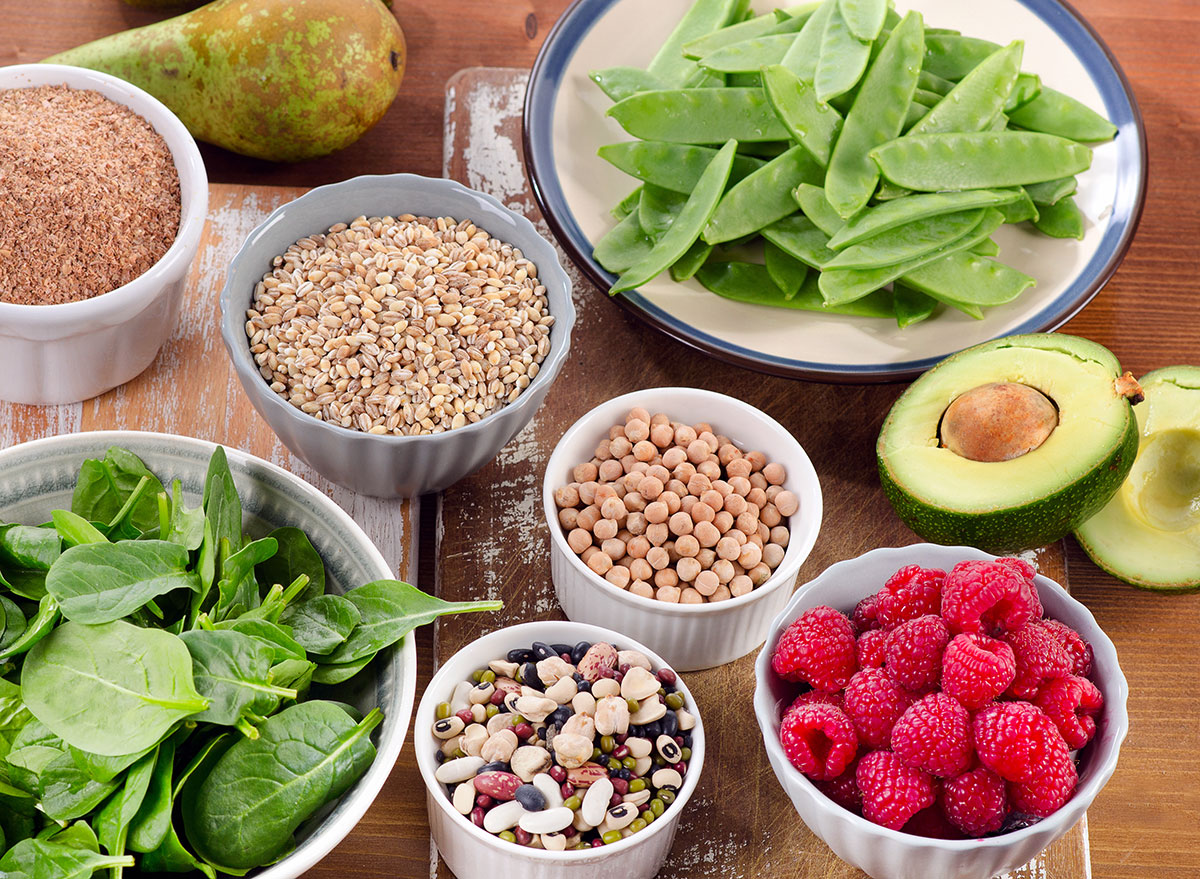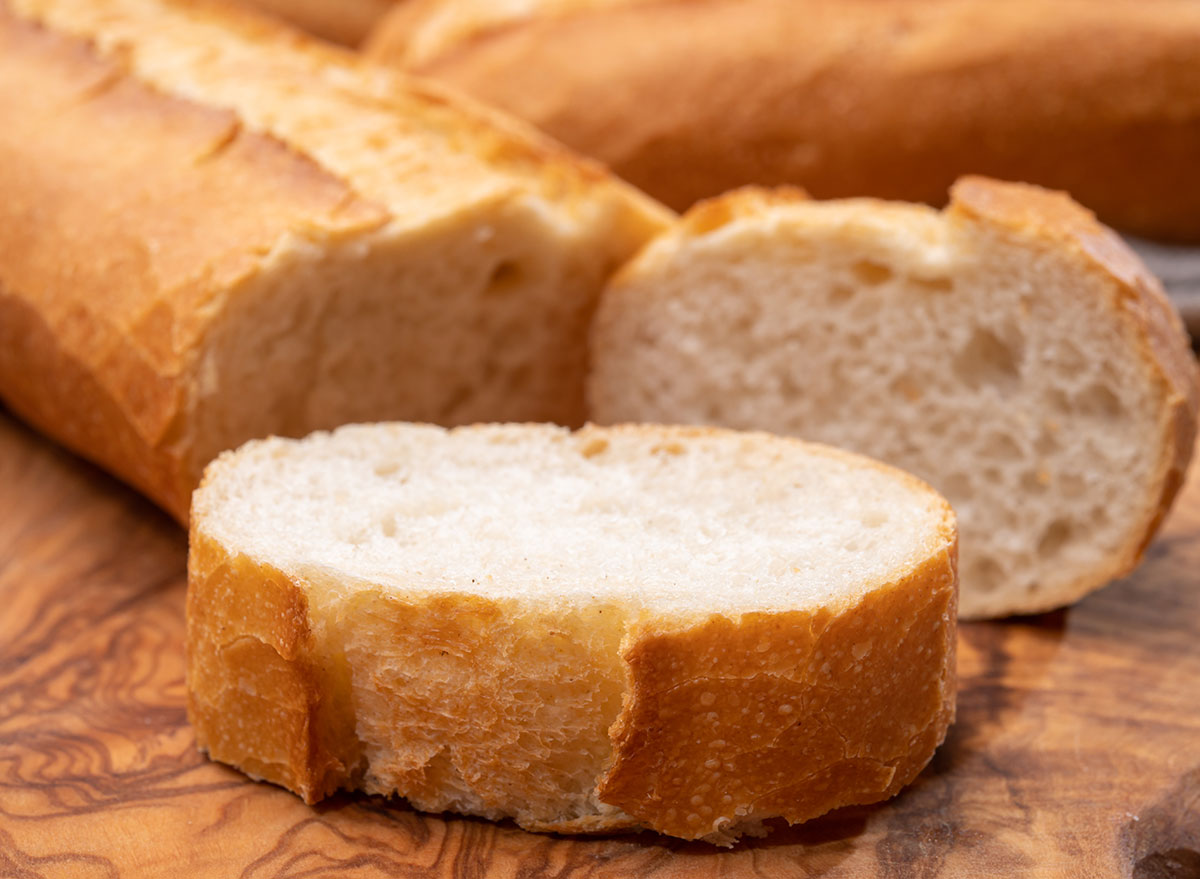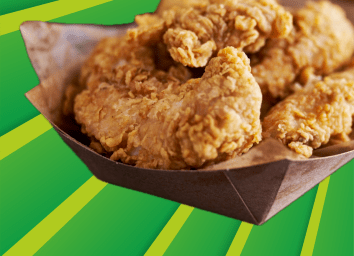Eating Habits To Avoid If You Want a Flat Belly, Say Experts

Ever heard the expression “abs are made in the kitchen?” Well, that saying holds true for a flat belly, too—regardless of whether or not you’re going for a six-pack. Experts say that what you eat (and drink) can have a profound impact on the appearance of your stomach.
“Diet plays an important role in metabolism, fat storage, and fat breakdown,” says Holly Klamer, MS, RDN with My Crohn’s and Colitis Team. “So, it’s an important piece of weight loss and trying to get a flat belly.”
It’s also important to note that other factors, like your stress and hormone levels, as well as genetics, can come into play.
“I would caution people to not get caught up in having a flat stomach as much as thinking about a healthy lifestyle that includes regular exercise and a healthy eating pattern,” says Liz Weinandy, RD at The Ohio State University Wexner Medical Center. “Some people are genetically predisposed to having more abdominal fat and for women who have gone through menopause, abdominal weight gain is more likely.”
With all of that in mind, here are some eating habits you’ll definitely want to avoid if you’re trying to achieve—or maintain—a flat midsection. Then, be sure to check out our list of The 7 Healthiest Foods to Eat Right Now.
Not eating enough fiber.

Consider fiber to be your BFF if you’re looking to flatten your belly.
“Not only does it help to keep things moving through the intestinal tract better for less constipation and bloating, but it also makes you feel more full so you eat fewer calories,” says Weinandy.
Elizabeth Brown, MS, RDN, and certified weight management specialist, recommends bolstering your fiber intake by eating more pulses, such as chickpeas, black beans, and lentils.
“These soluble-fiber-rich foods are low in calories but provide lots of volume,” she says. “They also help to cleanse your colon on the way out. In the process of elimination, pulses can literally help you expel excess fat, cholesterol, and yesterday’s meal that might’ve felt like it was hanging out in your GI tract a bit too long.”
Consuming too much artificial sweetener.

While you may think that opting for sugar-free sodas, ice creams, yogurts, and candies may be a healthier option, the reality is that the artificial sweeteners in many of these “diet” foods can sabotage your efforts to flatten your stomach.
“They aren’t broken down in the digestive tract and can cause bloating in some people,” says Susan Bowerman, MS, RD, and senior director of Worldwide Nutrition Education and Training for Herbalife Nutrition.
Bowerman especially advises limiting your consumption of sugar alcohols like xylitol and sorbitol. If you’re trying to avoid real sugar (which can also contribute to belly fat), stick with more GI-friendly substitutes like stevia and monk fruit extract.
Skipping breakfast.

“Many people skip breakfast because they are short on time or not hungry, but it’s essential to start your day with a nutrient-dense, filling meal with a mix of whole grains, fruits or vegetables, and lean protein,” says Melissa Joy Dobbins, MS, RDN, and host of the Sound Bites podcast.
One of Dobbins’ top picks for a flat-belly breakfast is oatmeal since it’s an excellent source of soluble fiber, which slows digestion and promotes the feeling of satiety both during and after a meal. In fact, oatmeal has been scientifically proven to help you feel full between meals.
Dobbins suggests prepping breakfast the night before if you tend to be short on time in the mornings. She also says you should aim to cover two to three food groups—for example, Greek yogurt with seeds and berries, a smoothie with almond butter, banana, and spinach, or hard-boiled eggs in a whole-wheat wrap with avocado. Or prep one of these 51 Healthy Overnight Oats Recipes!
Not drinking enough water.

It’s a common misconception that drinking a lot of water will contribute to bloating—when in fact, it allows your body to digest food more efficiently.
“Water helps that fiber move on through and can help prevent constipation,” explains Weinandy.
Not to mention, if you swap out soda, juice, or other sugary beverages with water, you can save a lot of calories and get one step closer to a flatter belly.
As for how much to drink, The U.S. National Academies of Sciences, Engineering, and Medicine recommends about 15.5 cups (3.7 liters) a day for men and 11.5 cups (2.7 liters) a day for women.
Going overboard on carbs.

There’s no need to cut carbs out completely to get a flat belly—in fact, as previously mentioned, fiber-rich foods can help to fill you up and keep your digestive system in tip-top shape. That said, Weinandy notes that limiting carbs may prove beneficial for some. For instance, instead of eliminating them from your diet, consider only having them at breakfast and lunch, and being mindful of portions while prioritizing protein and vegetables/fruits.
“There are some studies that show a modest loss of belly fat is easier on a lower-carb diet,” Weinandy says. “A word of caution, though—if you are eating a lot of saturated fat on a low-carb diet, it may hurt your heart by raising dangerous LDL cholesterol levels.”
So, if you do opt for a lower-carb diet, she highly recommends opting for lean proteins and heart-healthy fats (like olive oil, nuts, and avocados) over red meat, processed meat, and full-fat dairy.
Choosing refined grains instead of whole grains.

Speaking of carbs, experts across the board agree that whole grains (like oats, quinoa, farro, and whole-wheat pasta and bread) are much better choices for a flat belly than their refined counterparts (like white bread and pasta).
“Replacing refined carbs with whole grains and unprocessed whole-food carbs (such as those from fruit) can help keep that waistline in check,” says Kristin Gillespie, MS, RD.
A 2010 study actually showed that higher intakes of whole grains are associated with lower amounts of abdominal fat than refined carbs. How’s that for a good reason to swap your white rice for brown rice?
You can also incorporate these 9 Best Complex Carbs into your diet as well!
Eating too fast.

It’s all too easy to wolf down a meal when you’re super hungry, but experts say taking your time comes with a major payoff for your belly. Not only do you tend to overeat when you scarf your food down, but you may gulp down a lot of air, which can contribute to bloating.
“You should try to spend about 20 minutes eating your meal,” says Bowerman. “This gives your stomach time to signal your brain that you’re full.”
Get even more healthy tips straight to your inbox by signing up for our newsletter! After, read these next:








